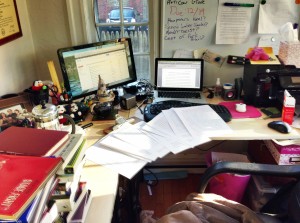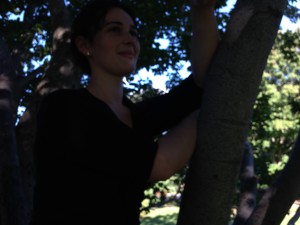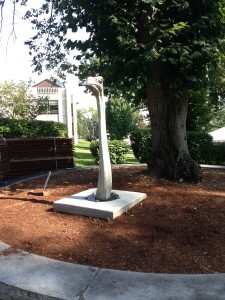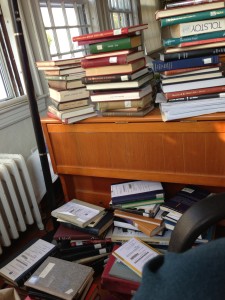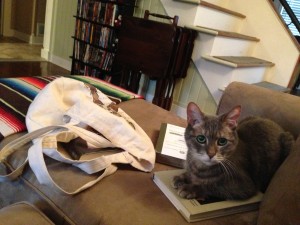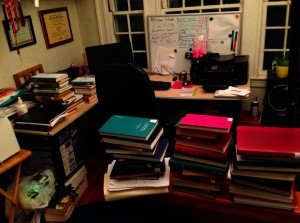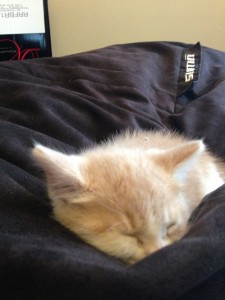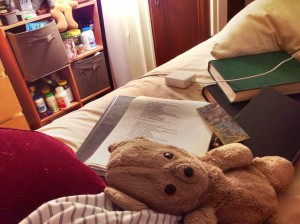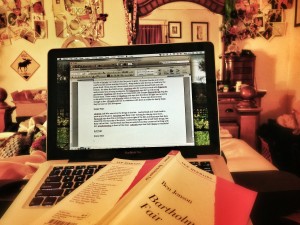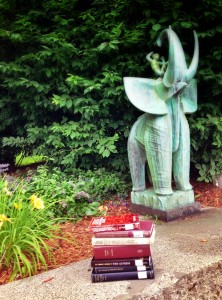In a faster-than-light turn-around time, the fate of my PhD career has been decided: I have, officially, passed my written comprehensive exam!
There is still a long way to go on the road to doctorhood (next up: orals; after which I can (non-denominational deity willing) call myself a “Doctoral Candidate” instead of a “Doctoral Student” and, perhaps, take a much-needed and well-deserved BREAK). That said, I’m champing at the bit for the next challenge and I’ve hit the ground running with the projects which had been sitting dormant just waiting for my exams to be complete.
I had been told that Comps would drain me. That I should expect to not do much of anything for a week or so after I sat the exam.
I found that this was true for the day or two directly following my final turn-in moment. I was dead tired. But I was also aware, as only a Type A personality can be, that I had a long list of things waiting for me. I had some deadlines looming; conference papers to write, blog posts that I owed people (details on that to follow!), and friends to catch up with.
While I was bone-weary, I was simultaneously caught in an existential loop of utter chaos.

a pretty shot of campus I took the other day
My life had been built upon preparing for and taking this exam for so long; what was I supposed to do now without it? Who was I if I wasn’t a book-reading machine designed only to take notes and choke down more theatre history? And what did my academic career really mean if I, for some reason, hadn’t succeeded at this monumental thing that I just did?
That not-so-slowly faded into a wave of “OH GOD I HAVE ALL THESE PROJECTS TO DO!” Luckily, since I had effectively proven to myself via the test that I’m an invincible super-girl, this did not panic me nearly as much as it would have in the days B.C. (Before Comps). In picking at the sides of my projects, I have been slowly but surely making good progress on them and, after Tuesday, will have knocked a few things off my desk so I can move onto the next step: orals.
It also took me some time to reconnect with my social and personal life. Towards the end of the comps process, I limited my interaction with the outside world. Part of this was of necessity; since I was studying much more, I didn’t have time to see anyone. Part of this was also a calming mechanism: as a terminal introvert, I just didn’t have the extra energy for social interaction. Especially any social interaction that I had to think about (which, for an introvert, is a surprisingly large amount). Because of all these factors (and the fact that I was still tired and brain-fried), I had to be very careful about re-introducing myself to my life. I did not have a giant blowout bash; I made play-dates to see my close friends in small group situations. I did not invite a ton of people over to my house; I went outside to smell the fresh air and not have to look at my desk for a while.
I cleaned my desk. Oh god did I clean my desk.
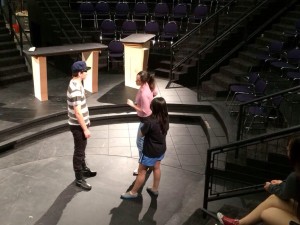
I also hopped in to rehearsal to put together some stage violence. Because nothing gets me feeling like myself again like punching students.
I’m slowly returning library books, but as my last count was over 150 books and I can only bring them back in manageable loads (10-20 or so), it’s been taking some time. At this point, I’ve gotten at least half of them returned (though I have picked up some more in the process to assist me with aforementioned projects).
I am, with more and more seriousness, exploring the idea of reading for leisure once more. During the final stages of studying, it was all I could do to tumble into bed at night and, due to eyestrain and general brain fatigue, leisure reading was right out. This unfortunately meant that To Be or Not to Be (Choose your own Adventure Hamlet) and William Shakespeare’s Star Wars: Verily, a New Hope sat sadly in the corner mostly un-cracked. The more days that go by, the more these volumes look appealing to me. It’s like regaining your appetite after you’ve had a stomach flu; it feels so good just to want these things again.
I’ve been calling this process “reclaiming my life” because, really, that’s how it feels. For several days after the exam, I walked around feeling not like myself. Like a stranger in my own body. These days, I’m feeling more and more Dani-like. The whiteboard is back to its normal peacekeeping. My tasks feel less alien and more comfortable (and comforting!). I’ve returned to using caffeine as a morning stimulant and not a life-line.
On the whole, I’m doing great. I’m not back to 100% yet, but I can tell that I’ll get there. I’m also feeling ready to take on the next challenge which, really, is the most important part.
Onward! Into the Wild Blue Yonder! To Doctorhood; and beyond!

